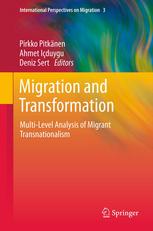

Most ebook files are in PDF format, so you can easily read them using various software such as Foxit Reader or directly on the Google Chrome browser.
Some ebook files are released by publishers in other formats such as .awz, .mobi, .epub, .fb2, etc. You may need to install specific software to read these formats on mobile/PC, such as Calibre.
Please read the tutorial at this link: https://ebookbell.com/faq
We offer FREE conversion to the popular formats you request; however, this may take some time. Therefore, right after payment, please email us, and we will try to provide the service as quickly as possible.
For some exceptional file formats or broken links (if any), please refrain from opening any disputes. Instead, email us first, and we will try to assist within a maximum of 6 hours.
EbookBell Team

4.7
26 reviewsPeople’s transnational ties and activities are acquiring ever greater importance and topicality in today’s world. The focus of this book lies in the complex and multi-level processes of migrant transnationalism in four transnational spaces: India-UK, Morocco-France and Turkey-Germany and Estonia-Finland. The main question is, how people’s activities across national borders emerge, function, and change, and how are they related to the processes of governance in increasingly complex and interconnected world?
The book is based on the findings of a three-year research project TRANS-NET which brough together internationally acknowledged experts from Europe, Asia and Africa. As no single discipline could investigate all the components of the topic in question, the project adopted a multi-disciplinary approach: among the contributors, there are sociologists, policy analysts, political scientists, social and cultural anthropologists, educational scientists, and economists.
The chapters show that people’s transnational linkages and migration across national boundaries entail manifold political, economic, social, cultural and educational implications. Although political-social-economic-educational transformations fostered by migrant transnationalism constitute the main topic of the book, the starting assumption is that the large-scale institutional and actor-centred patterns of transformation come about through a constellation of parallel processes.